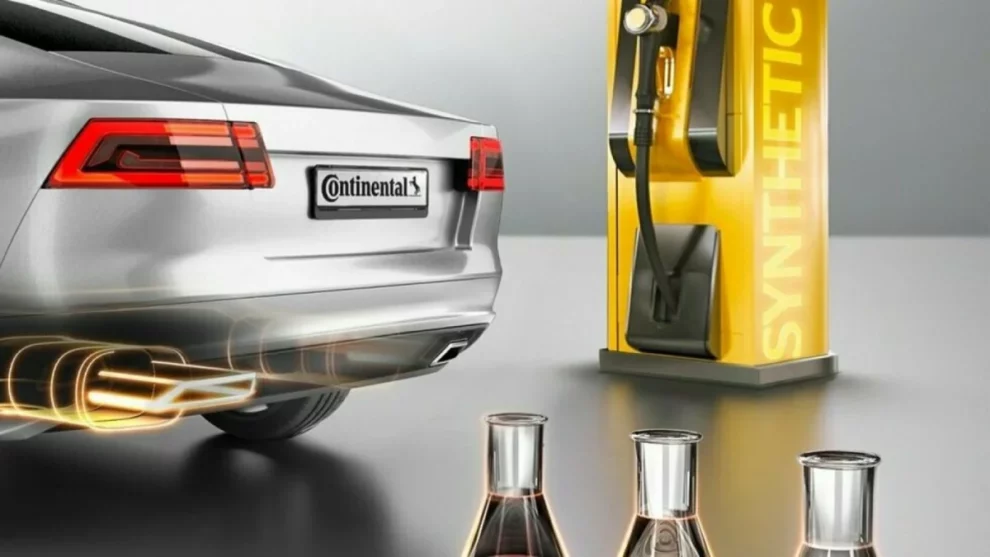Synthetic fuels stand at the forefront of innovation in sustainable transportation, offering a promising bridge between traditional combustion engines and zero-emission mobility. As the world grapples with climate change and the need to reduce carbon emissions, these laboratory-created fuels emerge as a potential game-changer in the global energy landscape.
Understanding Synthetic Fuels
Synthetic fuels, often called synfuels or e-fuels, represent a category of liquid fuels manufactured through chemical processes rather than refined from crude oil. These fuels can be produced using various feedstocks, including natural gas, coal, biomass, or even carbon dioxide captured from the atmosphere combined with green hydrogen. The resulting products closely mirror conventional fossil fuels in their chemical composition and energy content.
Production Technology and Innovation
Modern synthetic fuel production employs sophisticated processes that continue to evolve with technological advances. Power-to-liquid technology represents one of the most promising approaches, using renewable electricity to produce hydrogen through water electrolysis. This green hydrogen then combines with captured carbon dioxide in a synthesis process to create liquid hydrocarbons suitable for use in existing engines.
Recent breakthroughs in catalyst technology have significantly improved production efficiency, while advances in renewable energy generation help drive down the electricity costs associated with hydrogen production. These developments gradually make synthetic fuels more economically viable, though production costs remain higher than conventional fossil fuels.
Environmental Impact and Carbon Neutrality
Synthetic fuels produced using renewable energy and captured carbon dioxide offer the potential for carbon-neutral transportation without requiring immediate fleet replacement. When burned, these fuels release only the carbon dioxide previously captured during their production, creating a closed carbon cycle. This characteristic makes them particularly attractive for applications where battery electric alternatives face practical limitations.
The environmental benefits extend beyond carbon emissions. Synthetic fuels typically produce fewer particulate emissions and contain no sulfur, potentially improving air quality in urban areas. Additionally, their production can help balance renewable energy systems by utilizing excess electricity during peak generation periods.
Compatibility with Existing Infrastructure
One of synthetic fuels’ most significant advantages lies in their compatibility with existing vehicles and infrastructure. Unlike other alternative energy sources requiring new distribution networks or vehicle modifications, synthetic fuels can utilize current storage tanks, pipelines, and fueling stations. This compatibility potentially allows for a smoother transition toward lower-emission transportation.
Existing vehicles require minimal or no modifications to use synthetic fuels, preserving the value of current vehicle fleets while reducing their environmental impact. This characteristic proves particularly important for classic cars, aviation, and marine applications where electrification presents significant challenges.
Aviation and Maritime Applications
The aviation and maritime sectors show particular interest in synthetic fuels due to their high energy density and compatibility with existing engines. While battery electric solutions struggle to meet the range and power requirements of aircraft and large ships, synthetic fuels offer a potentially sustainable alternative without requiring dramatic changes to vessel design or operation.
Several major airlines have begun testing synthetic fuels in commercial flights, while shipping companies explore their use in ocean-going vessels. These early adopters help drive technology development while providing valuable real-world operational data.
Economic Considerations
Production costs currently represent the primary challenge for widespread synthetic fuel adoption. The energy-intensive manufacturing process and relatively small production scale result in higher costs compared to conventional fuels. However, increasing production volumes, improving technology, and potential carbon pricing mechanisms could help narrow this gap.
Government support through research funding, tax incentives, and regulatory frameworks plays a crucial role in advancing synthetic fuel development. Several countries have implemented policies supporting synthetic fuel research and production, recognizing their potential role in achieving climate goals.
Research and Development Focus
Current research focuses on improving production efficiency and reducing costs through various approaches. Scientists work to develop more effective catalysts, optimize synthesis processes, and integrate renewable energy more efficiently. Direct air capture technology for obtaining carbon dioxide continues to advance, potentially improving the overall environmental impact of synthetic fuel production.
Innovation in production methods includes exploring biological processes using engineered microorganisms and developing new reactor designs that could significantly reduce energy requirements. These advances could help make synthetic fuels more competitive with conventional energy sources.
Market Development and Implementation
Early market development often focuses on applications where alternatives face significant challenges or where users demonstrate willingness to pay premium prices for lower-emission options. Premium vehicle manufacturers have shown particular interest in synthetic fuels as a way to maintain performance capabilities while reducing environmental impact.
Industrial partnerships between energy companies, automotive manufacturers, and technology providers help accelerate development and create initial market demand. These collaborations often focus on specific applications or regions where synthetic fuels offer particular advantages.
Regulatory Environment
Government policies increasingly influence synthetic fuel development and adoption. Carbon pricing mechanisms, renewable fuel standards, and environmental regulations affect the economic competitiveness of synthetic fuels compared to alternatives. Some regions have begun incorporating synthetic fuels into their long-term energy and transportation strategies.
International cooperation plays an important role, particularly in establishing standards and ensuring consistent quality across markets. These efforts help create a more predictable environment for investment in production facilities and distribution infrastructure.
Future Outlook and Potential
The future of synthetic fuels appears increasingly promising as technology advances and environmental pressures grow. While they may not represent the sole solution to transportation-related emissions, synthetic fuels could play a crucial role in specific applications and help bridge the transition to fully renewable transportation systems.
Integration with renewable energy systems offers particular promise, potentially helping balance variable wind and solar generation while producing sustainable transportation fuels. This synergy could support broader energy system transformation while providing practical solutions for hard-to-electrify transportation sectors.
Synthetic fuels represent a fascinating example of how innovative technology can help address environmental challenges while maintaining compatibility with existing infrastructure. As development continues and production scales up, these fuels may prove instrumental in achieving sustainable transportation goals while providing practical solutions for applications where alternatives face significant challenges.
















Add Comment